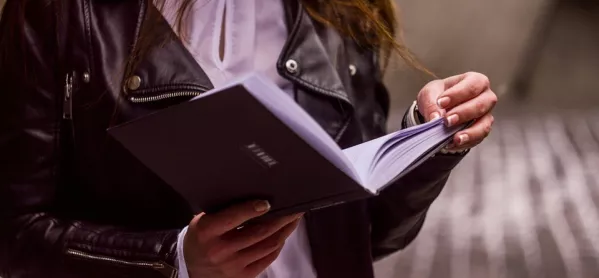Approaches to reading linked to the new GCSE in English literature may be putting pupils off reading, new research reveals.
Respondents to the survey, conducted by John Gordon of the University of East Anglia’s school of education, said that the process of analysing a novel in school distracted them from engaging with its story and characters.
They added that the new GCSE’s emphasis on studying a novel’s literary features was off-putting and confusing.
These findings come as thousands of pupils receive their results in the new, reformed English literature GCSE. Coursework has been abolished and assessment is by 100 per cent closed-book exams.
Pupils are no longer allowed to take texts of the novels or plays they have studied into exams. Instead, they must remember details of the texts and recall key quotations.
Dr Gordon said: “Our respondents said that analysis interfered with their enjoyment of the story. The new exam framework maybe makes it more challenging for teachers to give space to those kinds of discussions that people had reported as key to their enjoyment.”
‘Put me off Hardy’
The study, of 165 current pupils, adults and teachers, found that teenagers approach reading exam texts very differently from reading for pleasure.
Many respondents described the process of shared reading during lessons as uncomfortable. They said that reading in front of others, or waiting to be asked to read by teachers, was anxiety-inducing.
One respondent said: “I never liked to read aloud in class, but was happy to read along while others read aloud.”
Others said that the novel selected for study was unhelpful. One respondent discussed having to study The Trumpet Major by Thomas Hardy: “It has put me off Hardy ever since. It seemed to relate so little to adolescent male - and probably female - interests.”
‘Sharing and discussing’
Dr Gordon conducted the research in order to find out what makes the experience of reading a book powerful.
He said: “Reading together in school and for an exam is a different experience to how you read at home. Indeed, reading a book together in this way is quite an unusual thing to do.
“There are clearly many enthusiastic readers who do not necessarily enjoy traditional literary analysis, but welcome the experience of sharing and discussing stories together.”
A Department for Education spokesperson said: “Over the last six years we have incorporated the best features of successful curricula and qualifications from the around the world into our education system and signalled our intent to continue raising standards with the introduction of a standard and strong pass at GCSE.
“This is complemented by our ongoing investment in apprenticeships and the technical education system. We will continue to work with the teaching profession to ensure there is no limit on any child’s potential.”
Want to keep up with the latest education news and opinion? Follow Tes on Twitter and like Tes on Facebook




